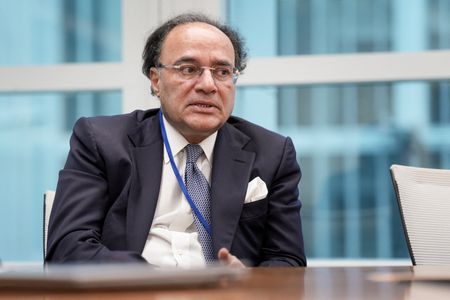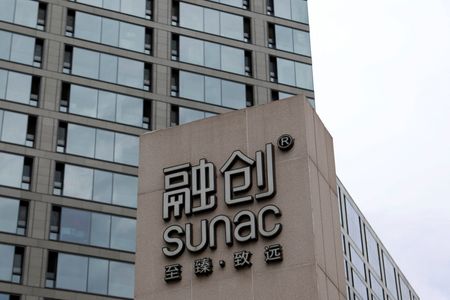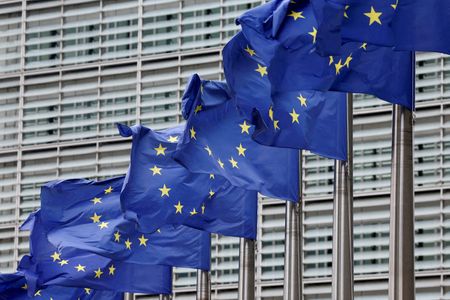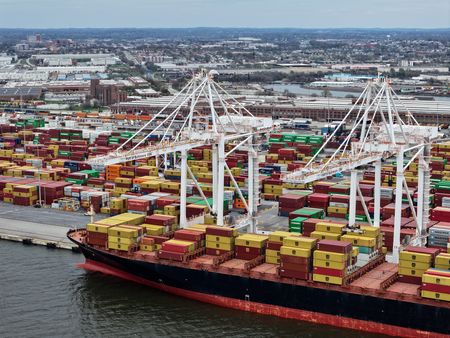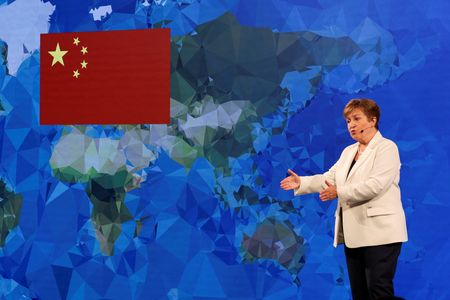By Karin Strohecker and Andrea Shalal
WASHINGTON (Reuters) -Pakistan is poised to sign a preliminary deal on a review of its loan programme with the International Monetary Fund this week, the country’s finance minister said, a key step required to pave the way for another $1.24 billion payout from the lender.
An IMF mission left Pakistan last week without signing a so-called staff level agreement on the second review of the Washington-based lender’s $7 billion Extended Fund Facility and the first one on its $1.4 billion Resilience and Sustainability Facility agreed in 2024 to shore up the economy after a severe financial crisis.
“The mission was on the ground for a couple of weeks, we had very constructive dialogue with them around the quantitative benchmarks, the structural benchmarks, and we’ve been having some follow-up discussions,” Muhammad Aurangzeb told Reuters during an interview on the sidelines of the IMF World Bank annual meeting.
“During the course of this week, we’re hoping that we can get the SLA done.”
Countries under IMF lending programmes need to pass regular reviews, which – once signed off by the Fund’s executive board, trigger a payment of the next tranche of IMF funding.
The IMF programme agreed in September 2024 helped shore up then-cash-strapped Pakistan’s $370 billion economy that was engulfed in an economic crisis with inflation spiralling to record highs, a rapidly depreciating currency and a bulging external deficit.
Aurangzeb expected the government would launch a green Panda bond – the first one denominated in Chinese yuan for Pakistan – before year-end and return to international markets next year with a bond sale of at least $1 billion, though details were still to be decided.
“Euro, dollar, Sukuk, Islam Sukuk – we’re keeping our options open,” he said.
Meanwhile the privatisation push – part of a long-delayed sale of state assets under an economic reform and fiscal stabilisation agenda – was expected to gain traction in the fiscal year to end-June after disappointing results last year.
“This is something which is very important as part of our economic roadmap,” he said.
Pakistan was also making progress on the sale of three power distribution companies and national carrier Pakistan International Airlines (PIA).
“We are quite hopeful,” Aurangzeb said, citing prospects for qualified bidders for PIA after lucrative routes to Europe and Britain were opened, which made it “a very good proposition for the investors.”
The transaction would mark the country’s first major privatization in about two decades. A previous attempt collapsed last year after a single lowball offer was received, but the government has since drawn interest from five domestic business groups including Airblue, Lucky Cement, investment firm Arif Habib and military-backed Fauji Fertilizer.
Final bids are expected later this year.
(Reporting by Karin Strohecker: Editing by Sharon Singleton)

